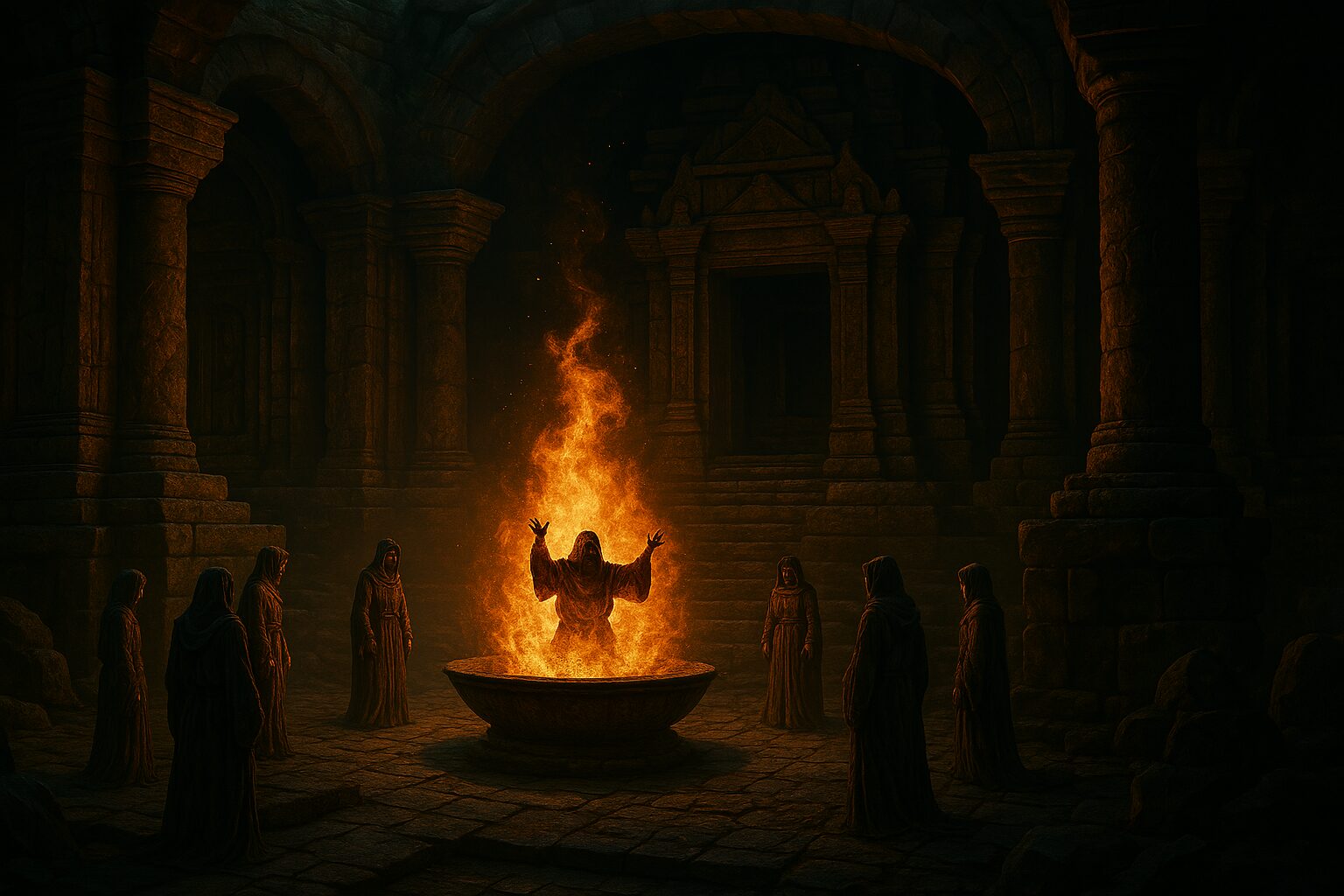In the winter of 1904, Dr. Ellison Virell, a linguistic anthropologist from the University of Ulridge, set out on what was meant to be a straightforward mapping expedition. He had grown disillusioned with the ivory towers of academia — its rivalries, its sterile theories, and the way it commodified every culture it touched. When he received a strange letter from an explorer long thought dead, speaking of a hidden civilisation “untouched by nation or empire, where the land itself speaks and listens,” he felt an irresistible pull.
No one knew precisely where this place was — the cartographers dismissed it, and the ethnographers laughed behind their beards. But something in the letter — the weathered ink, the way the writer had capitalised “Stillness” as if it were a person — it haunted him. Something, something wonderful, that he had long ago forgotten began to return, and it would not leave him alone. Ellison resigned his post, liquidated his small inheritance, and followed the trail into a stretch of fog-veiled land unclaimed by any government. The locals, when asked, would only refer to it with a gesture: a hand drawn slowly across the mouth, then to the chest. Silence. Then reverence.
It took him three months of near-starvation, illness, and two failed expeditions before he found it.
The civilisation called itself Kireval, though their word held more depth than mere location. It meant something like “the Place that Waits.” It was not built of stone or brick but grown, interwoven with the land. Trees had been shaped over centuries to form dwellings. Lights shimmered not from fire, but from curious stones humming with soft energy. Time felt strange in Kireval — not absent, but less urgent, as though each moment unspooled slowly and with care.
They welcomed Ellison without ceremony but without suspicion. A child had seen him in a dream, they said. He was allowed to walk freely, though he understood little at first. No written language, no coin, no hierarchy — yet everything seemed to function. Conflicts were rare, and when they occurred, they were sung into resolution by the elders.
These elders were called gurus, though not in the mystical sense Ellison had expected from the East. In Kireval, a guru was not one who knew more, but one who carried silence well. They did not teach by instruction, but by stillness. Children followed them, mimicking their movements, their breath, their attention. Over time, knowledge grew within the student like moss upon stone — slowly, quietly, and with permanence.
The most revered of them was Soralen, a man whose gaze seemed to pierce through memory. He rarely spoke, but when he did, it felt like an answer to a question you hadn’t yet asked. Soralen took a mild interest in Ellison and, in time, the two would sit in long silences together, broken only by birdcalls or wind.
But even here, the tremors of the outside world began to seep in.
Young members of the community — those born after the last great star-fall — began to question the old rhythms. They wanted to build, to harness, to invent. One, a bright and eager thinker named Joril, constructed strange mechanisms that clicked and pulsed with fire. He argued for progress, for strength, for shedding what he called the “weight of watching.”
“The world has changed,” Joril said to Soralen one day. Ellison was there, scribbling in a journal. “We must keep up, or we will vanish.”
Soralen looked not at Joril, but at a sleeping fawn curled in the shade. “Perhaps vanishing is our keeping.”
Joril bristled. “I’d rather be fire than smoke.”
Within weeks, Soralen was gone.
No one saw him leave. There were no footprints, no packed satchels. Just the empty grove beneath the sky-willows and a peculiar hush that settled over Kireval, like the world was holding its breath.
After his disappearance, nothing worked quite right. Crops soured. The forest grew restless — trees cracking without wind, animals fleeing in silent herds. The stones that lit the homes began to flicker erratically. Joril’s machines, once proud and humming, sputtered and failed.
The elders spoke of a rupture — not in soil or sky, but in meaning. A forgetting. They said Soralen had been the last one who remembered how to hold the thread between the visible and the unseen.
Ellison wrote everything down, every word, every detail. But over time, his hand slowed. The world he was trying to explain refused to be explained. His academic instincts faded. He stopped documenting and began listening.
Eventually, he too left — not in disappearance, but in choice. He returned to the industrial world just once, older and quieter. His peers dismissed his writings as the fevered scribbles of a man lost in the jungle. He never argued. He published nothing.
But in private letters, he wrote of Kireval. Of the moment Joril returned alone to the grove. Of the way he knelt beside the Mirror Pool and said, not to anyone in particular, “We were wrong.”
And how, just then, a single ripple moved across the still water, though no wind blew.
Today, no map holds Kireval.
But sometimes, if you sit very still in the moments between dusk and nightfall, you may feel something — a slight shift in the air, like the world is pausing to remember something it once knew. And if you listen closely, beneath the hum of power lines and the ticking of clocks, you may hear a different rhythm, slower, older — the last breath of the last gurus.


Leave a Reply